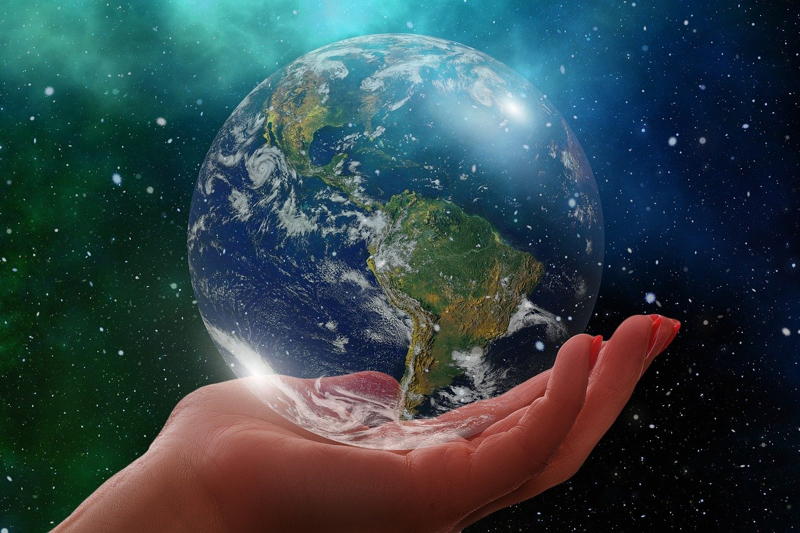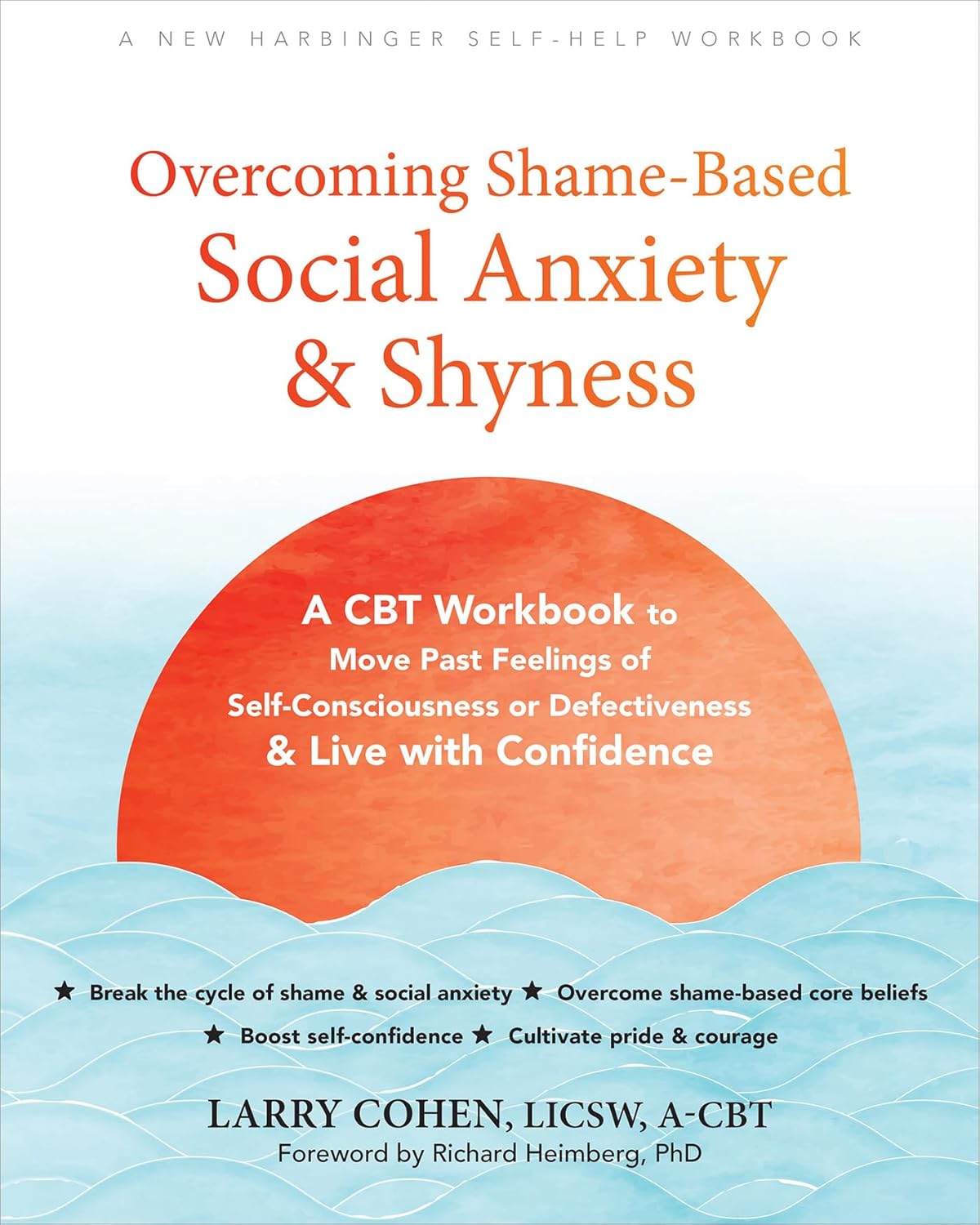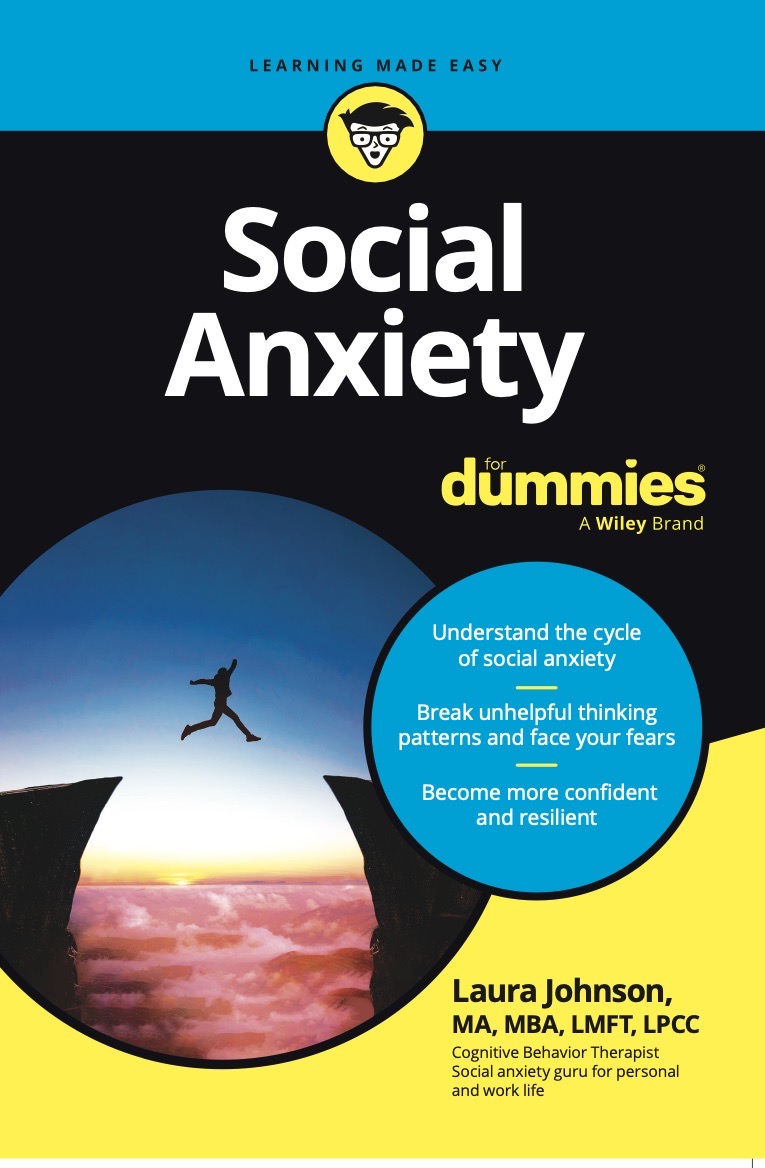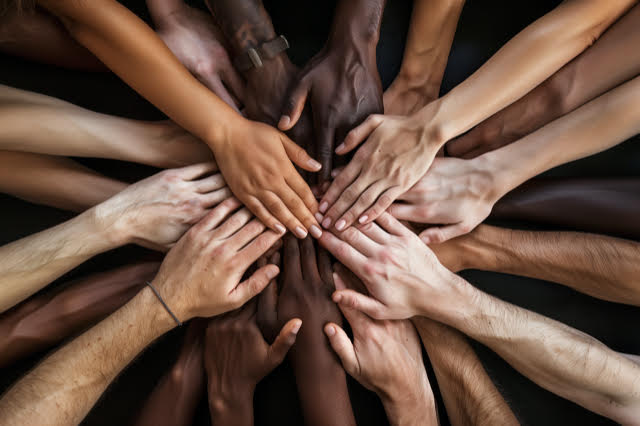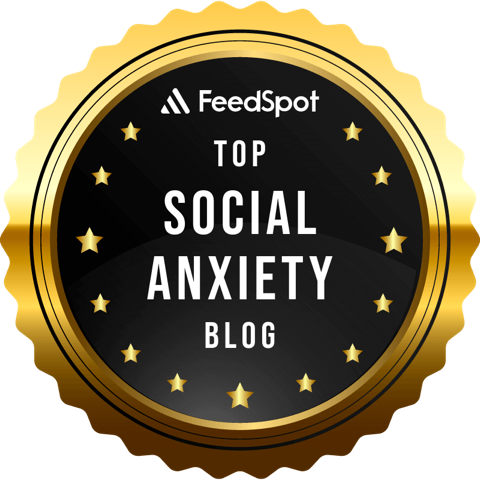Initially, it may not seem like social anxiety and eco-anxiety have much in common. One relates to interpersonal interactions and fear of judgment, while the other is tied to environmental concerns and fears about the future of the planet. While they may seem unrelated at first glance, there is an unexpected connection between these two forms of anxiety. In this blog post, I’ll delve into the overlap between social anxiety and eco-anxiety as well as some coping strategies to help you manage them.
How I Learned About Eco-Anxiety through a Social Anxiety Client
I recently had a client* who came to me for help with social anxiety. As we started working together, he initially shared how social anxiety and avoidance affected his family and his work. We created a hierarchy, also known as a fear ladder, of situations he was avoiding at home and at work due to social anxiety. We rated the intensity of social anxiety so he could work from easiest to hardest.
As a small business owner, the ladder included speaking in public, joining groups, networking, sharing his opinions, being assertive with his business partner, seeking out new business opportunities and asking prospective new customers for fair compensation for projects.
At home, his social anxiety caused additional problems. He was so afraid of criticism that he would avoid sharing his feelings with his wife and he had very few friends. He felt isolated and disconnected. His marriage was suffering.
He was successful in his career but he did not feel he was achieving enough. He had ideas about growing his business but he was anxious about networking and meeting new people. These thoughts troubled him so much that he no longer felt connected to his company’s mission and he even considered changing careers.
Eco-Anxiety Concerns Start to Emerge
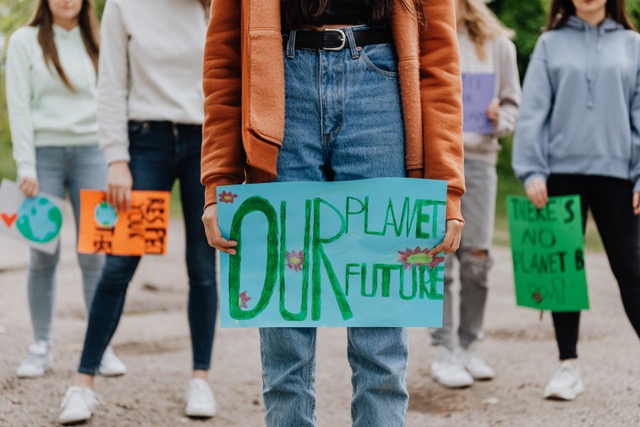
After a couple of sessions, something different and unexpected emerged in our discussions. He started talking about his intense worry about the future due to the environmental changes taking place. He was convinced the world and everyone in it would be gone in about 10 years due to climate change and global warming. He felt isolated from his wife, family members and his few friends because no one understood his concerns about the environment. When he looked at his children, he felt guilty for having brought them into a world he believed was doomed.
When he tried to talk about his fears, he felt judged and criticized. So he stopped talking about it and kept his worries to himself. At night, he would slip down into a rabbit hole, “doom-scrolling” through news reports of droughts, fires, extreme heat, intensifying hurricanes and mass extinction. He felt hopeless and helpless about what he could do to change this. He was struck with a sense of impending doom, inaction and indecisiveness all the time.
As a therapist, I aim to understand the experience of my clients. But I must admit that it was hard for me to understand his extreme feelings and perspectives. I validated his concerns about rapidly intensifying climate change and tried to encourage him to focus on the things he could control. He seemed to appreciate the validation but he balked at the idea of trying to shift his focus. If I suggested that he was catastrophizing, I inadvertently reinforced his sense of social isolation.
One day he brought me an article to help me understand his concerns. The article described a type of anxiety that is focused on the environment, climate change and global warming. This anxiety is referred to as eco-anxiety but is also known as climate anxiety or environmental anxiety.
Incorporating Eco-Anxiety into a Social Anxiety Therapy Plan
Armed with a better understanding of what my client was facing, I endeavored to learn about how eco-anxiety and social anxiety overlap. My hope was to help my client use our social anxiety hierarchy as a frame for helping him manage his fears about the environment. We updated his list of feared situations to include his anticipation of criticism and judgement related to his beliefs about the environment. We also addressed the impact that his avoidance of expressing his thoughts on climate change was having on his behaviors.
As my client examined this issue further, he realized that his avoidance was preventing him from getting involved in taking action on climate change. He explored ways to get social support for his eco-anxiety so he could feel more connected with others. As he began to open up to others about his environmental anxieties, he started to envision a new career path that would allow him to be part of the solution for climate change.
So What Is Eco-Anxiety?

Eco-anxiety, also known as climate anxiety or environmental anxiety, refers to the chronic stress, worry and fear of environmental doom in response to the impact of climate change on our planet. It manifests as a deep concern for the environment, and can include feelings of hopelessness, emotional distress, preoccupation with environmental issues, guilt and helplessness, and fear about the future and its impact on future generations.
From my perspective as a therapist, I believe that worry about the environment is a realistic and understandable response to the challenges we face as a society. More and more people are expressing concerns about the future of planet Earth. In fact, polls by Pew Research and NPR/PBS NewsHour/Marist have identified that one-half to two-thirds of Americans consider climate change to be a major threat to the country’s well-being. However, when chronic worry about the environment gets in the way of daily functioning and causes significant anxiety, depression and avoidance, it can be detrimental to mental health.
What is Social Anxiety?
Social anxiety can manifest in the following ways:
• Feeling self-conscious or embarrassed in front of other people and being sensitive to perceived judgment or criticism
• Worry about being viewed as stupid, awkward or boring
• Being inwardly focused and imagining other people can see that they are anxious
• Worry about acting or appearing visibly anxious (e.g. blushing, sweating or stumbling over words)
• Ruminating for days before or after a social event or even simple interpersonal interactions
• Having a hard time making and/or keeping friends
• Avoiding social situations and events out of fear and worry
How do Eco-Anxiety and Social Anxiety Overlap?
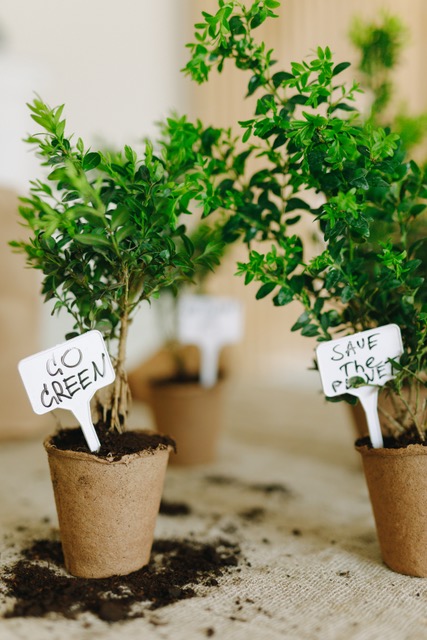
There are several ways that social anxiety and eco-anxiety can impact each other.
Fear of Judgment or Criticism:
Social anxiety and eco-anxiety may cause people to worry about being judged for their environmental choices or advocacy. They may avoid social situations that involve discussing environmental issues because they fear that others will dismiss or ridicule their concerns. This can discourage them from participating in environmental events, expressing their views on the environment and finding like-minded individuals who might actually share their opinions.
Social Isolation:
While social anxiety alone can cause people to avoid social interactions for fear of criticism or judgement, the combination of social anxiety and eco-anxiety may intensify that tendency to isolate. Those who suffer from both social anxiety and eco-anxiety may struggle to find common ground with significant others. They may find that friends and family just don’t understand their views on the environment, making it that much harder for them to engage socially. They may withdraw from support systems and avoid talking about their environmental concerns to avoid being criticized. In this way, eco-anxiety in socially anxious individuals can cause people to feel frustrated and disconnected.
Avoidance of Environmental Activism:
Environmental activists know what an important role social interactions play in raising awareness of climate change and other global issues. Engaging with others to promote environmental causes can trigger social anxiety, as it often involves collective action, public speaking, networking or organizing events. Social anxiety and avoidance can undermine an individual’s opportunity to make a difference and contribute to positive change. Socially anxious individuals with environmental concerns might want to get involved with environmental groups but struggle to take the necessary steps to do so.
Managing Social Anxiety Related to the Environment
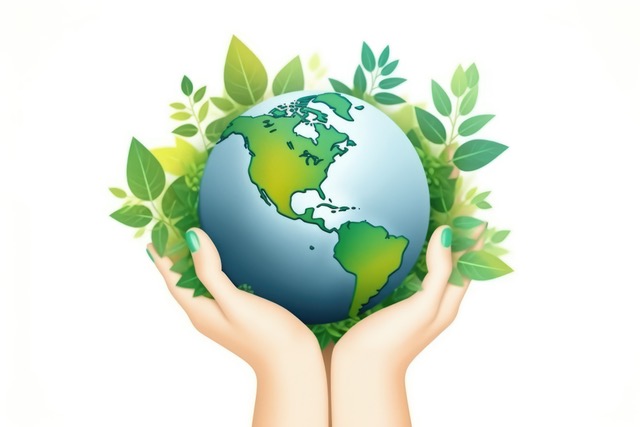
If you think you may be experiencing both social anxiety and eco-anxiety, there are a number of coping strategies that will help you gain social support and get involved with making an impact on the environment.
Self-Awareness:
Understand the impact that social anxiety and eco-anxiety can have. This can be done by exploring the unique factors that trigger your anxiety and avoidance. While self-awareness alone might not bring all the changes you are seeking, it can help you to become more compassionate with yourself and others. By adopting more gentle self-talk, you can become a better advocate for environmental change.
Seek Social Support:
Make an effort to reach out to family members and friends. Be realistic about the support they can offer. Focus on finding a kind and interested listener among your friends and family, even if they don’t fully understand the depths of your environmental concerns. Also, consider finding like-minded individuals who can provide real emotional support about your environmental concerns.
Collective Action:
Some environmentalists think that individual actions are insignificant compared to collective action. When social anxiety gets in the way, you may feel uncomfortable participating in environmental activities involving other people. In these circumstances, you may want to develop a list of feared situations specific to environmental activism. Rank them from easiest to hardest and start with the least overwhelming options. For example, you may start with a simple collective action, like participating in the clean up of a park or beach. Higher up on the list might be activities such as calling environmental groups or attending volunteer meetings. When you feel comfortable with these lower level activities, you may decide to advocate for environmental policies and support organizations working toward sustainable solutions. You might want to engage in local and political advocacy around issues of climate change. These collective actions might help you feel that you are having a meaningful impact on the environment and inspire a sense of hope and community.
Individual Action:
Don’t forget all the small ways you can support the environment. Individual action on climate change can include personal choices in many areas such as diet, travel, energy use, consumption of goods and services, family size and many more. While small actions may not feel like you are making a big enough impact, it can help to reduce the sense of powerlessness and improve your self talk until you are ready for a greater challenge. You can also add to the lower levels of your fear ladder with smaller social risks. For example, you could decide to return your recycling in public or plant low-water plants on your front lawn. Or you could find an opportunity to talk with others about the environment or perhaps even enjoin a family member to improve their environmental habits.
In the end, you may decide you are happy after all with focusing on individual actions and not feel a need to move up the ladder to collective action. This is fine as long as you are not avoiding moving up the ladder due to fear.
Cognitive-Behavioral Therapy (CBT):
If you can’t overcome social anxiety and eco-anxiety on your own, you might consider therapy. The most effective therapy for social anxiety is cognitive-behavioral therapy (CBT). To help with the eco-anxiety aspect of your treatment, you can search through the online information posted by various therapists to see if you can find common ground on environmental concerns. Or, you can send an email to a prospective therapist to see if they will have a sympathetic ear to your concerns about the planet.
Conclusion
If you care deeply about the environment and the future of our planet, yet social anxiety and avoidance are making you feel helpless and hopeless about making an impact, there are ways you can work on this. Consider gradually exposing yourself to situations related to environmental causes so you can work on your social anxiety in a productive way. Start with small actions that are lower on your fear ladder and work your way up.
Remember your goal is to have a meaningful life and if environmentalism will help you achieve that, it would be a shame to allow social anxiety to hold you back.
*No identifying information is included and this client example reflects commonalities with clients who are having social anxiety and eco-anxiety.

